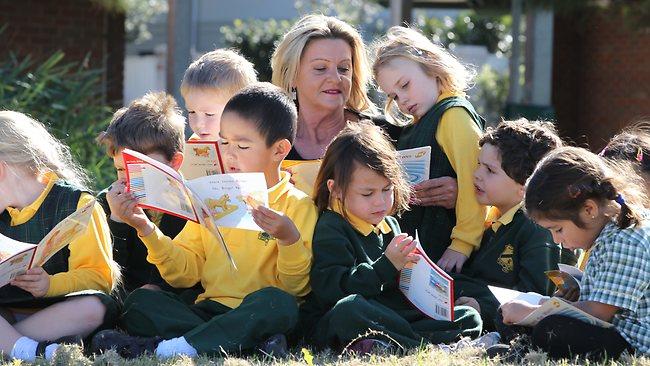'Nanny state' school web rules panned
CIVIL libertarians have ridiculed Labor's new regulations that ban South Australian schools from naming students in publications on the internet.

CIVIL libertarians have ridiculed Labor's new regulations that ban South Australian schools from naming students in publications on the internet, including newsletters, if their photographs also appear.
A new media policy announced by the government yesterday includes measures aimed at protecting children, but which school principals say go too far.
The regulations ban the publication of photos online of students who are alone, in swimwear, or not in school uniform, and any photographs that do meet the new guidelines must not include names identifying them.
Primary Principals' Association president Steve Portlock said the social media guidelines would stop schools from publicising students' achievements in what he said was an "unintended consequence".
"We are interested in a common sense approach, but this policy potentially cuts out a whole range of opportunities that schools use to acknowledge and reward students for their achievements, " Mr Portlock said.
Class photographs published in annual reports would also be covered by the policy as they were published online.
Education Department head of schools Garry Costello said guidelines banning the identification of children was aimed at protecting them.
"It's a very long shot that this would ever happen to a child, but we've just got to be protective of them to make sure that it doesn't open them up to anything that would be untoward or inappropriate," he said.
"I don't think it is paranoia; I think it's probably trying to be responsible and to make sure that the way that it is done cannot possibly be damaging to the young people in our care."
Mr Costello said photogrpahs could be identified with a first name, but not a surname.
Council of Civil Liberties spokesman George Mancini said the government was guilty of a "nanny state excess".
"Is there any evidence that predators use those materials?" he said.
"I would not have thought that it is an effective or meaningful risk management tool unless there is strong evidence that people are being subject to harassment, and the onus is on the government to show that."
Mr Portlock said he wanted the government to sit down with principals to review the guidelines.
"I understand the intent, but what we are doing is trying to set up a policy to stop a very, very minor occurrence and we are disadvantaging every parent and grandparent in doing that," he said.
"We need to sit down and work out what is the common sense approach to implementing these guidelines."
Premier Jay Weatherill said the state government was responding to the demands of parents.
"I think that these are all driven by parents and their demands and their interests around their children," he said.


